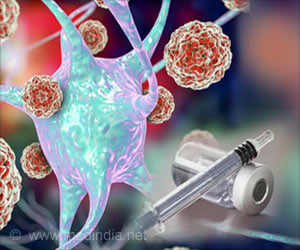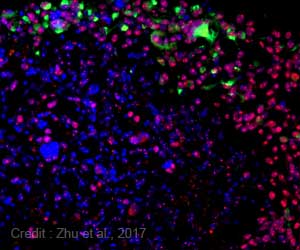Traditional cancer treatments like chemotherapy, radiation, and surgery are being augmented by Artificial intelligence.

HCG Manavata Cancer Centre (HCGMCC) & Hospitals
Go to source). Health experts noted that AI plays an important role from developing new drugs to predicting the treatment outcome and prognosis.
‘Did You Know?
By 2040, the number of new cancer cases per year is expected to rise to 29.5 million. #artificialintelligence #cancer’





It can also boost the growth of personalized medicine. However, concerns remain over data privacy, safety, and ethical use of patient data. By 2040, the number of new cancer cases per year is expected to rise to 29.5 million. #artificialintelligence #cancer’
Boosting Cancer Outcomes with AI Integration
"As a surgical oncologist, I can confidently state that AI is no longer limited to surgery, chemotherapy, targeted therapy, or radiation. It has profound implications in radio diagnostics and biomedical cancer research as well. AI applications in biomedical cancer research are aiding in creating new medications and treatments. It facilitates early cancer detection through image analysis, a critical application we use for the early detection of oral cancers," Raj Nagarkar, Managing Director & Chief of Surgical Oncology & Robotic Services of HCG Manavata Cancer Centre (HCGMCC) & Hospitals."AI computer vision models are being explored in radio-imaging modalities for early detection of disease and cancer risk prediction. Point-of-care diagnostics startups are using AI algorithms for early detection with promising results. Early detection of disease has a significant impact on outcomes and by employing AI, we can certainly improve cancer care delivery," added Roheet Rao, AVP, IT & Oncology at Apollo Hospitals. Raj said that AI-enabled screening for breast cancer is also assisting in designing and personalizing treatments.
When it comes to radio diagnostics, machine-learning techniques in CT scans and MRIs improve imaging accuracy.
AI-driven aids, particularly in CT scans, MRIs, and mammography, can enhance segmentation and improve the diagnosis of several cancers.
Advertisement
Beyond Chemotherapy and Radiation
Further, AI in chemotherapy refines and customizes treatment options, analyzing datasets to tailor treatment plans based on genetic and molecular characteristics. Predictive models can be designed to estimate patient responses to specific regimens, said Dr Raj.Advertisement
"Deep learning models for cancer stem cell detection aid in early diagnosis and customizing treatment plans, making AI a reality across all facets of oncology, from diagnosis and research to treatment," Raj said.
There are, however, risks involved in using AI for healthcare that need to be addressed before we can see a wider adoption of AI in care delivery.
"One of the key issues is data privacy, safety, and ethical use of patient data," Roheet said. He also pointed out the bias in AI models, which is based on the training data used to generate these models.
"Unless there is validation of AI models across different types and cohorts of data, oncologists need to be mindful of such biases," the doctor told IANS.
"The accuracy and reliability of the models need to be tested thoroughly both prior and then within clinical settings to ensure patient safety. Clinicians will always have the final say on clinical care irrespective of the AI models being used as the only way to ensure oversight when using AI is to have a human-in-the-loop," he noted.
Reference:
- HCG Manavata Cancer Centre (HCGMCC) & Hospitals - (https://www.hcgmanavatacancer.org/)
Source-IANS















